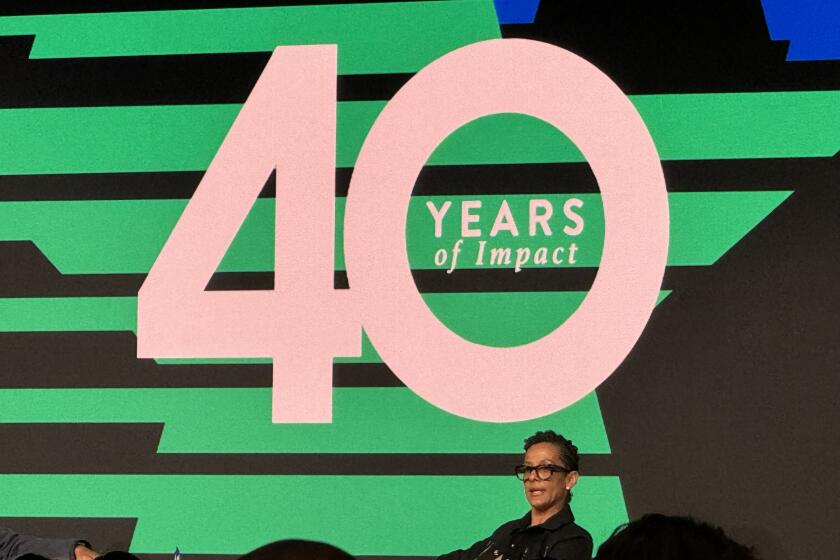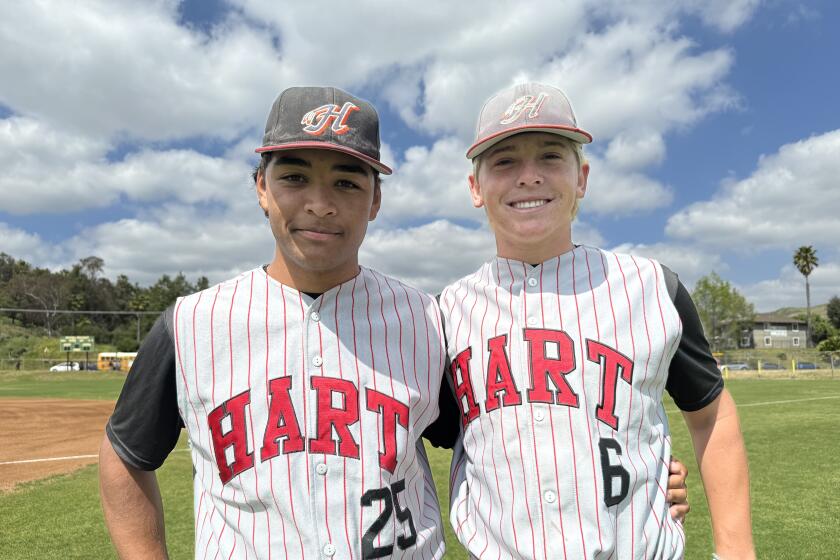Santa Margarita is example that using college approach in high school sports is dangerous
There’s a stampede of private high school administrators seemingly rushing forward to let parents and children know that their school is offering a “college-like education experience,” and that includes the football program.
My response: Be careful what you wish for.
In the five months since the last football game was played, several top private schools got rid of their coaches, replaced them with big-name successors, gave them lucrative salaries and told them to bring in more students and win more games.
Now comes the hard part: Succeeding within the rules. Already, one of those schools, Santa Margarita, finds itself looking pretty foolish.
According to Southern Section documents obtained by The Times through the California Public Records Act, top Santa Margarita administrators, including President Paul Carey, Principal Ray Dunne and Athletic Director Rich Schaaf, approved and even attended a reception for a March 31 event organized to introduce the new football coach, Harry Welch, to potential new students. The event was later determined by the Southern Section to be a violation of CIF undue influence rules.
In a letter dated April 14 from Commissioner Jim Staunton to Carey, the Southern Section concluded the gathering of more than 40 families violated Bylaw 510, undue influence, was athletic in nature and was directed toward incoming athletes hosted by the coaching staff. In other words, it wasn’t an open house for academic purposes.
“It can be reasonably concluded that, while the head football coach carries the title of ‘assistant to the President,’ his purpose that evening was to introduce himself as the head football coach, attract financial support for the athletic program and promote camps taught by his coaching staff,” according to the letter. “Santa Margarita administrators who know CIF bylaws and could possibly have brought greater depth to the evening absented themselves from the proceedings after the brief reception.”
And here’s the big news: “As a consequence of this breach of the bylaws, the school is placed on immediate probationary status. Such status denies entry into playoffs in the sport of football during the 2010 season.”
Now that’s the kind of stiff punishment public school coaches would say is long overdue against private schools that violate recruiting rules. There’s one small problem, however.
Santa Margarita and the Southern Section later agreed to a “self-imposed” school punishment that neither the school nor the section would reveal. In fact, Santa Margarita and the Southern Section last month said “the matter is closed.” Both seemingly want everything to be forgotten. And yes, the football team is eligible for the playoffs in 2010.
Meanwhile, I can only conclude that Welch, who remains the coach, has been designated the fall guy, and some kind of severe punishment was imposed against him, which doesn’t make a whole lot of sense considering Santa Margarita administrators had full knowledge of this debacle.
More important, this is just the beginning of what figures to be an intriguing couple of years as private schools decide how far they want to push their “college-like education experience.”
They’ve already added recruiting coordinators, strength and conditioning coaches, weight-training facilities as lavish as any private health club, Internet TV and radio broadcasts, tutors, summer camps . . .
So now it’s time to treat them like a real college program. In other words, if the team doesn’t win enough games, the coach should be fired. That’s what happens at USC and UCLA.
Except that’s never been the bottom line for most high school football programs. The coaches were considered teachers first. Winning was important but losing didn’t necessarily mean you lost your job.
So if private schools are really committed to adopting the college model, I say again: Be careful what you wish for.
twitter.com/LATSondheimer
Get our high school sports newsletter
Prep Rally is devoted to the SoCal high school sports experience, bringing you scores, stories and a behind-the-scenes look at what makes prep sports so popular.
You may occasionally receive promotional content from the Los Angeles Times.




